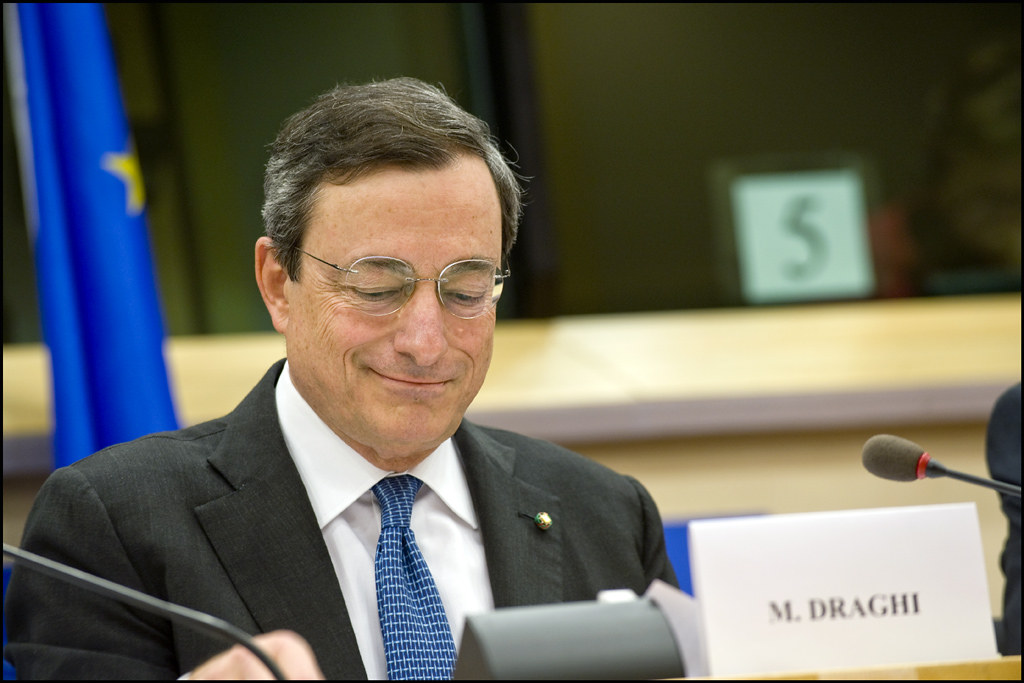Politics & Society
Italy’s Modern-Day Renaissance
From the Euro Cup to the G20
Italy is on a winning streak this year. The country’s national soccer team won the European championship. Måneskin, Italy’s entry in the Eurovision Song Contest, took home the top prize and has since dominated global charts. And Italian Matteo Berrettini… well, he almost won the gentlemen’s singles at Wimbledon, losing only in the final round. From Wimbledon to Wembley, Italy’s triumphs have sparked the phrase rinascimento azzurro, meaning – more or less – that the country is experiencing another renaissance.
Italy has also had a political rebirth with Mario Draghi. Almost concurrently with the U.S., earlier this year Italy too changed leadership as the former European Central Bank chief assumed Italy’s premiership in February. He came into power as Rome holds the G20 presidency, meaning that he’ll serve in October as host of a summit of the group’s top political leaders. Italy plans to use its presidency to address climate change, the COVID-19 pandemic, international terrorism and the global economy, a heady agenda that positions Rome at the crux of global and, more specifically, transatlantic relations. Even Italian soccer star Leonardo Bonucci noticed, claiming, “It’s coming to Rome!” While he was really teasing the English about their loss of Europe’s soccer championship, his outburst could be applied more widely.
Italy takes the stage
Following last year’s coronavirus outbreak, Italy has reemerged as a transatlantic player. The Draghi administration is intent on reform and realigning the country with Europe and the U.S. Following a push from Biden during the G7, Italy has already reversed a previous drift towards China that featured an endorsement of Beijing’s Belt and Road Initiative. Now, American criticisms of China’s human rights abuses “reflect the Italian position”. Italian Foreign Minister Luigi Di Maio has also made clear that relations with China do not undermine those with the United States and NATO. In fact, Italy is positioning itself as an intermediary between China and the West.
This month, Draghi’s leadership earned him a spot among TIME Magazine’s 100 Most Influential people. In her profile of the Italian leader, U.S. Treasury Secretary Janet Yellen expressed that “the U.S. is grateful to have Mario as a partner once again.” Yellen found that Draghi’s “do whatever it takes approach is more relevant and inspiring than ever,” and further evidence can be found with his success in boosting Italian growth to exceed that of other Eurozone economies, including Germany and France.

Thanks to its G20 presidency, Italy has been in the spotlight in other ways, too. The country co-hosted this year’s Global Health Summit and plenary ministerial meeting of the Global Coalition to Defeat Daesh/ISIS. At the former, Draghi announced that Italy will share 15 million vaccine doses with countries in need by the end of the year. At the latter, co-chair U.S. Secretary of State Antony Blinken (the other co-chair is Di Maio) praised Italy’s efforts as having “distinguished itself as one of the few Western European countries” to repatriate “terrorist fighters” who operated in Central Asia. Di Maio confirmed Rome’s commitment to counterterrorism by pledging to reinforce its diplomatic presence in Africa and by encouraging a joint approach to target Daesh’s financial resources through the Counter ISIS Finance Group, which Italy co-chairs with the U.S. and Saudi Arabia. In a related effort, Italy has also taken a lead in bolstering security in Libya, a goal shared by the U.S. Draghi became in April the first European leader to visit the interim government in Tripoli, which Rome supports by providing assistance for capacity building and migration management.
Draghi has been active on other issues, too. He has called upon the G20 to address the debt crisis threatening low-income countries by altering the allocation of IMF Special Drawing Rights. On the environmental front, Italy is the UK’s presidency partner for November’s COP 26, the United Nations Climate Change Conference. And it was at a meeting of G20 finance ministers in Venice that agreement was reached to set a global minimum corporate tax of 15%.
Italy’s key EU appointments also reflect the country’s legitimacy in field where it had not previously assumed leadership. Former Prime Minister Paolo Gentiloni has served since 2019 as European commissioner for economy, overseeing Europe’s post-pandemic economic recovery by coordinating sustainable and green investment among member states. And former parliamentarian and Deputy Foreign Affairs Minister Emanuela Claudia Del Re is the EU Special Representative for the Sahel, the first Italian to occupy the post.
The show must go on
Italy is demonstrating that it is ready to assume a leadership role in forging future transatlantic links. Draghi is laying out a foreign policy that reflects greater engagement on challenges faced by that alliance. He is emphasizing Italy’s pro-European and pro-Western stance to position the country as a major partner, and the timing for this move could hardly be better. With Germany and France focused on approaching elections and subsequent formation of new national administrations (even if, in France’s case, under a reelected President Emmanuel Macron), Italy could be, according to Nathalie Tocci of Rome’s Institute for International Affairs (IAI), “the right country at the right time” to emerge as a global leader of Western interests. “We are experiencing a moment of Italy's leading role on a European and international level, [and] the G20 presidency is proof of this,” Tocci has said.
All the progress, however, remains just a first step. Italy must now exploit the momentum to definitively establish its influence as a leading European power on par with France and Germany. So far, 2021 shows signs of a modern-day Italian renaissance. The real challenge ahead is nurturing that rebirth so that a promising beginning does not wither away.